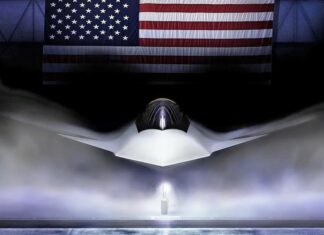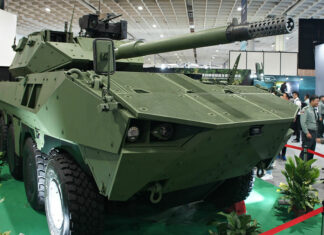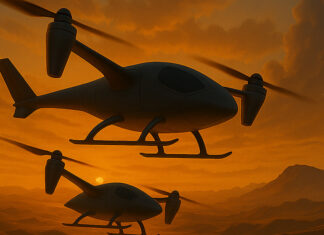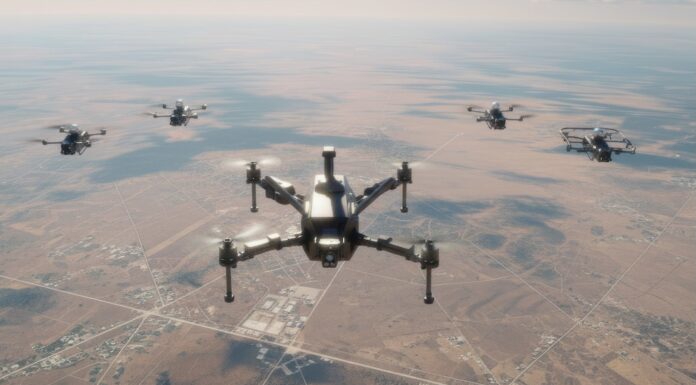General Atomics began flight testing of the new, multi-mission jet-powered Predator C Avenger Unmanned Aerial System. The aircraft continued flight testing since its first flight in April 2009. A second, slightly larger Avenger is currently in production, scheduled to join the first aircraft later in 2010. With a 44-foot long fuselage, 66-foot wingspan, and 6,000 lb payload capacity, tail two will be slightly larger than tail one and will feature increased payload capacities. A third aircraft is also in production. The new Avenger is capable of flying at over 400 KTAS and can operate up to 50,000 feet for 20 hours. The Avenger’s avionics are based upon the battle-proven Predator B/MQ-9 Reaper.
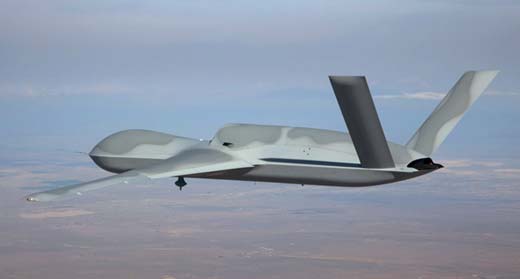
“The test program for Avenger is proceeding along very well, with some results exceeding our expectations,” said Frank Pace, president, Aircraft Systems Group, General Atomics Aeronautical Systems, Inc. The first aircrat ‘Tail one is currently averaging two to three flights a week, with the capacity to support a more aggressive schedule as range availability allows. Since May 2010 flight tests were transferred from GA-ASI’s Gray Butte Flight Operations Facility in Palmdale, Calif., to Naval Air Station (NAS) China Lake, Calif., allowing increased envelope expansion. The aircraft has demonstrated the ability to be launched in only 30 to 45 minutes from hangar to flight. According to GA-ASI the test aircraft have demonstrated outstanding handling, confirming analytic models, simulations and wind tunnel results. The fuel burn rates also have been up to ten percent better than models had predicted, yielding increased endurance. Additionally, a new approach in the test process has reduced the number of flights required to ensure that the engine meets all operating constraints significantly.
“With the capability to perform manned aircraft missions, Avenger offers the war fighter unrivaled persistent situational awareness and strike mission affordability,” said J. Neal Blue, chairman and CEO, General Atomics Aeronautical Systems, Inc. “For the cost of one manned fighter aircraft, multiple-swarm configured Avengers can blanket an area of interest, providing unprecedented 24/7 ISR coverage, target identification, and neutralization, mission flexibility, and attrition tolerance.”
Avenger is designed to perform high-speed, long-endurance, more covert, multi-mission Intelligence, Surveillance, and Reconnaissance (ISR) and precision-strike missions over land or sea. It features a variety of internal weapons loads, including 2,000 lb Joint Direct Attack Munition (JDAM), an Electro-optical/Infrared (EO/IR) sensor, and an all-weather GA-ASI Lynx Synthetic Aperture Radar/Ground Moving Target Indicator (SAR/GMTI), maximizing both long loiter ISR and weapons carriage capabilities.
Avenger has drawn significant interest from both U.S. and allied forces and is a significant candidate for the United Kingdom’s upcoming SCAVENGER UAS Program. Utilizing proven systems and operating from the same, continually improving ground control stations as Predator and Reaper, it offers unique advantages in terms of performance, cost, timescale, and adaptability. The aircraft is capable of supporting coalition operations, in both benign and higher threat environments, and will ensure immediate NATO interoperability by working in tandem with Royal Air Force, U.S. Air Force, and Italian Air Force Predator-series aircraft.





